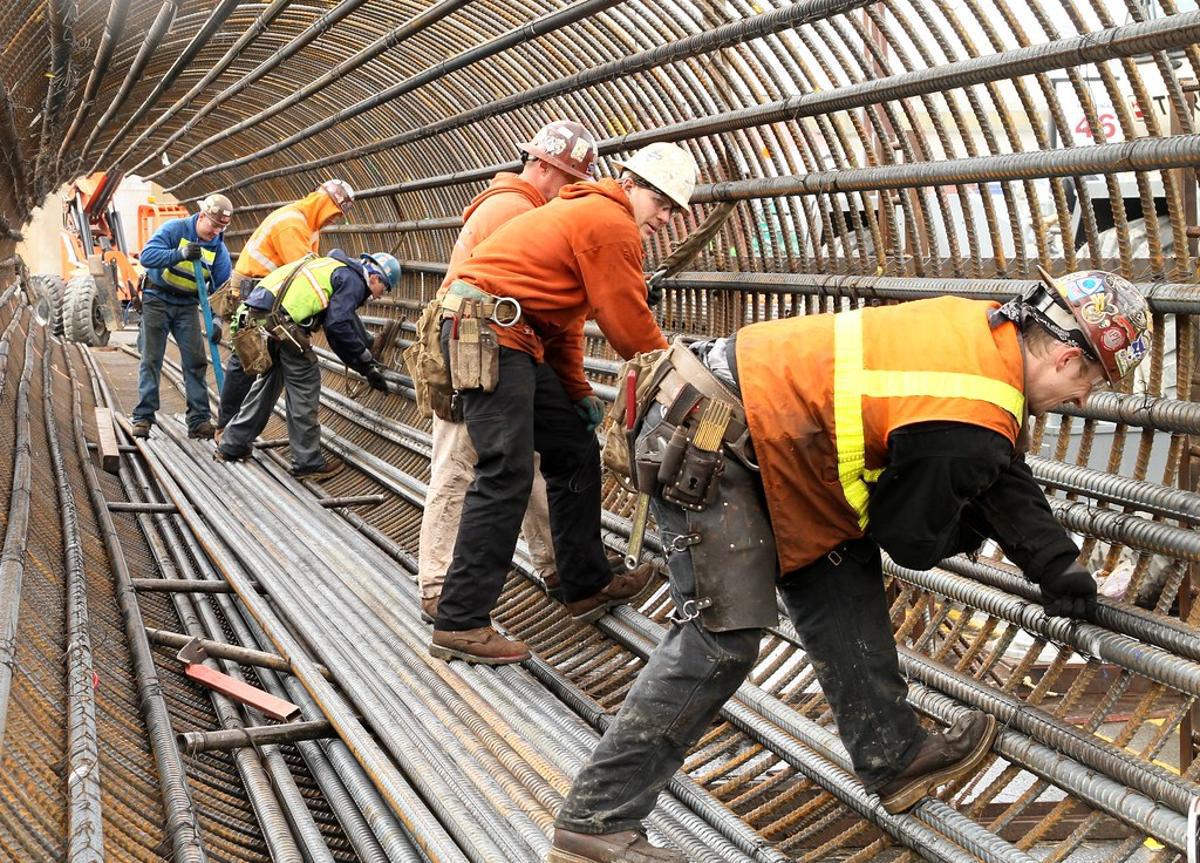More than 305,000 Americans lost their jobs to layoffs in 2023, but two states seem to have felt the impact harder than the other 48.
Both Michigan and Missouri have experienced extensive layoffs in the past six months, especially within the automotive and manufacturing industries.
Reports From the Department of Labor Are Extreme

The US Department of Labor reported that the unemployment rate increased by 0.2% to 3.9% nationwide in February 2024. In February 2023, there were 6 million unemployed Americans, and now there are 6.5 million.
But while layoffs are certainly prevalent throughout the 50 states, Missouri and Michigan saw 1,443 and 1,204 jobless claims, respectively throughout the month. Which means these two midwest states are struggling more than most others.
Who Is Losing Their Job?

In February 2024, the vast majority of people who lost their jobs in Michigan worked in the manufacturing industry. While in Missouri, the automobile sector saw the brunt of the layoffs.
However, dozens of residents in both states were also laid off in other industries, including biotech, Big Tech, and food manufacturing.
The Auto Industry in Missouri Is Struggling

Data collected by the Bureau of Labor Statistics shows that the auto industry throughout the country, but especially in Missouri, is seriously struggling.
At the start of the COVID-19 pandemic in 2020, the US auto industry saw the lowest number of exports since the Great Recession. While its numbers have increased marginally over the past four years, they are still not where they need to be.
Many Big American Auto Companies Are in Trouble

The significant decrease in sales has led several major American auto companies to cut back on spending, mostly by laying off thousands of their employees.
General Motors laid off 1,000 employees from its Orion Assembly Facility last month and plans to lay off another 1,314 by March 25, 2024. Additionally, Ford announced in January that it planned to cut 1,400 jobs from its Detroit factory.
Many Missourian Drivers Also Lost Their Jobs

It’s not just factory workers that are finding themselves unemployed. School bus drivers who work for Missouri Central School Bus are also in trouble.
The company announced that it planned to lay off 332 people in March 2024. And the Student Transportation of America in Kansas City says 149 employees will be unemployed by June 30.
The Michigan Manufacturing Industry

In addition to thousands of layoffs in the automotive production industry, Michigan is also experiencing significant losses in its other manufacturing sectors.
Apogee Enterprises, a Minnesota-based glass manufacturing company, plans to lay off 250 employees and close its facility in Walker, Michigan. Wire manufacturer National Standard is also closing its Michigan facility after 117 years of business, leaving 84 former employees without work.
Reports Say It Will Be Hard for the Recently Let Go to Find New Jobs

Getting laid off is always frustrating, but in the current economic climate, losing one’s job right now could be absolutely debilitating.
According to a survey conducted by the Federal Reserve, hiring demand will continue to decrease throughout the rest of 2024. This essentially means that, of the thousands of people losing their jobs, only a small percentage will find work this year.
WARN Announces an Increase in Jobless Claims

WARN, or the Worker Adjustment and Retraining Notification Act, was created to protect the American people from unforeseen layoffs by ensuring companies give ample notice.
WARN recently announced that they expect layoffs to not only continue but actually increase over the coming months, leading to a significant jump in unemployment numbers through 2024.
Unemployment in the USA Is Climbing Every Month

As previously noted, unemployment rates in the USA are growing every month. There are 500,000 more unemployed Americans right now than there were at this time last year.
At 3.7%, the US unemployment rate is still considered manageable. However, as it creeps upwards, experts are worried the US economy will get far worse before it improves.
Who Is to Blame for Massive Layoffs Across the Country?

Whenever unemployment levels increase, Americans look for someone to blame. Some, of course, say President Biden has influenced the massive layoffs across the country by allowing inflation to increase substantially and through his poorly planned Inflation Reduction Act.
However, others argue that new tech developments, including artificial intelligence, are to blame. Human employees are becoming redundant, and corporations have collectively decided that saving money is far more important than employing hard-working Americans.
Unemployment Increases Will Undoubtedly Impact the US Economy in 2024

The truth is that there are a wide variety of reasons for the massive layoffs throughout the United States. No one person or futuristic technology is to blame
But these layoffs, in Michigan, Missouri, and around the country, will undoubtedly negatively affect the lives of many American citizens, as well as the nation’s economy as a whole over the next few years.
